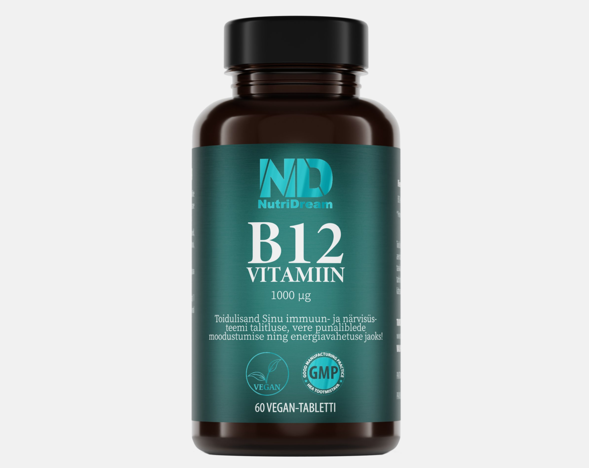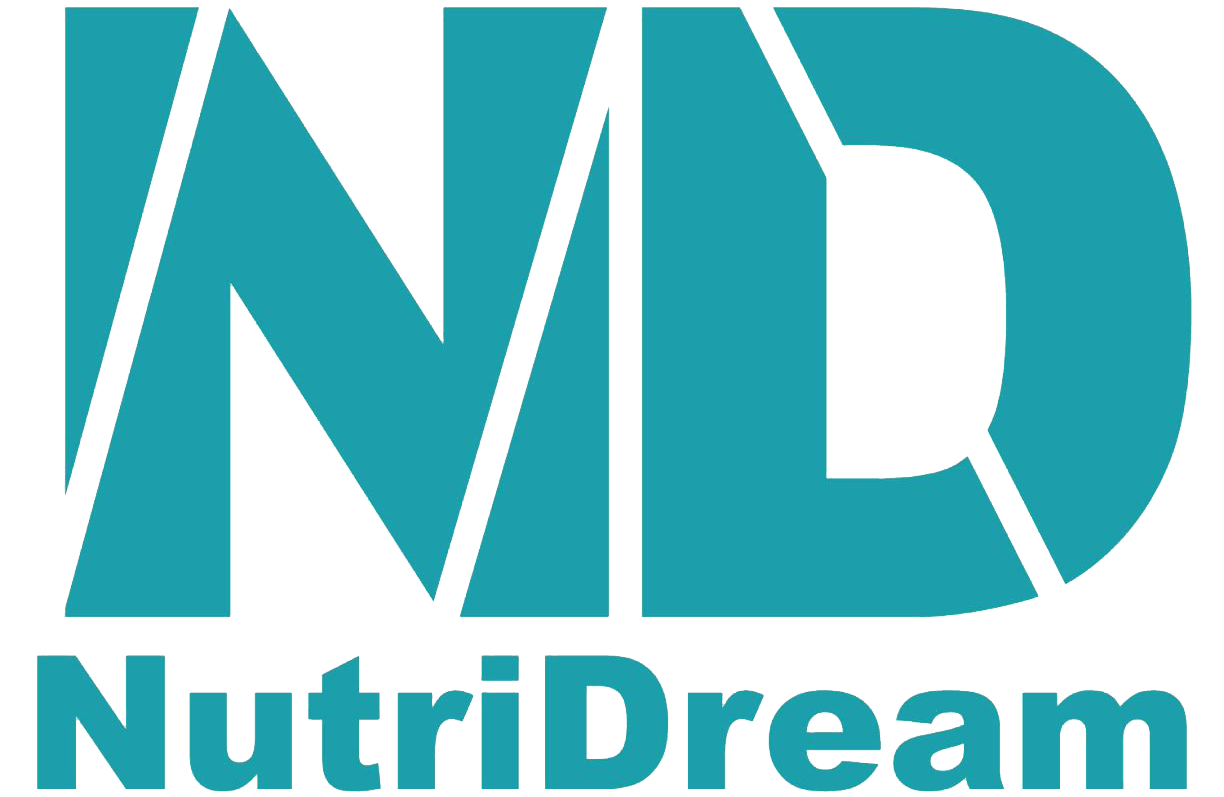What is vitamin B12?

What is vitamin B12?
Vitamin B12 is a cobalt-containing anti-anemic compound found in various parts of the body in several biologically active forms, such as methylcobalamin in cells, hydroxocobalamin in the blood, and deoxyadenosylcobalamin in the mitochondria. Due to its cobalt content, it is also known as cobalamin. The main storage site of vitamin B12 in the human body is the liver, where reserves can last for 3–5 years. In general, a deficiency does not occur with a normal diet and healthy lifestyle. However, it may develop in cases such as low stomach acid, removal of the small intestine, or chronic alcoholism. Symptoms of deficiency include irritability, memory lapses, and general weakness. In cases of avitaminosis, conditions such as megaloblastic and pernicious anemia, a dry tongue, and cracked and painful lips may occur.
The Physiological Role of Vitamin B12 – Why Is It Important for Us?
Vitamin B12 performs several vital functions in the body:
- Blood Formation: Together with folic acid, it supports the formation of red blood cells (erythrocytes) and helps prevent the development of anemia. In cases of B12 deficiency, red blood cells become larger and more oval-shaped, which hinders their movement. During anemia, erythrocytes cannot transport enough oxygen throughout the body, leading to symptoms like fatigue and weakness.
- Energy Metabolism: Vitamin B12 acts as an important coenzyme in the citric acid cycle, where the resulting product is used by cells to produce energy.
- Nervous System: B12 plays a crucial role in the normal function of the brain and nervous system. It is needed for the formation of myelin, the protective sheath around nerve fibers. A lack or deficiency of myelin can lead to irreversible polyneuropathy, which may manifest as dementia, memory decline, and irritability. However, there is no strong statistical evidence that B12 supplementation significantly improves already established polyneuropathy symptoms.
- Homocysteine Metabolism: Homocysteine is an amino acid that the body converts into other amino acids like methionine and cysteine when levels of vitamins B6, B12, and folic acid (B9) are sufficient. These amino acids are crucial for many vital processes, including proper protein synthesis. If levels of these B vitamins are low, homocysteine levels in the blood rise, which can be an early indicator of deficiency. High homocysteine levels can damage cells and, without timely treatment, increase the risk of dementia, heart disease, and stroke. Meta-analyses have shown that long-term and high-dose use of B12 can lower homocysteine levels. However, it has also been found that B12 alone or in combination with other B vitamins does not reduce the risk of mortality from cardiovascular diseases.
- DNA Synthesis: Vitamin B12 is involved in folate metabolism and the synthesis of nucleic acids (DNA and RNA).
- Immune System: While vitamin B12 is not a classic “immunity vitamin” like vitamin C or D, its role in supporting normal immune function is indirect yet important. For example, B12 helps regulate blood homocysteine levels, which is crucial not only for cardiovascular health but also for proper immune function. Additionally, adequate B12 levels support the activity of immune cells and the production of white blood cells.
Where can you get vitamin B12?
Only bacteria and archaea can synthesize it, meaning that the human body can only get the necessary form of vitamin B12 from food or supplements. The main sources of vitamin B12 are foods of animal origin, such as liver and kidneys, red meat, poultry, fish (e.g. salmon, mackerel, tuna) and dairy products. Plant foods contain very little or virtually no vitamin B12, which is why vegans and vegetarians are at greater risk of developing this deficiency. Plant analogues of vitamin B12 (pseudovitamins), which are found in algae, such as spirulina, are not bioactive in humans. It is also not recommended to consume spirulina with a vitamin B12 supplement, as this can prevent the absorption of B12. To some extent, vitamin B12 is also found in chlorella, but its amount is still small. Absorption is inhibited by excessive alcohol, smoking, coffee, low stomach acidity, and also some medications, such as oral contraceptives and laxatives.
Who should consume it?
Generally, the body stores vitamin B12 for a long time and it is not necessary to administer it for prophylaxis. However, there is a slightly increased need during pregnancy and lactation and long-term veganism. The absorption of vitamin B12 is also somewhat reduced in the elderly. In addition, the risk of reduced absorption of vitamin B12 increases when taking metformin or drugs that reduce stomach acidity (e.g. omeprazole).
Vitamin B12 and dietary supplements
Vitamin B12 is found in dietary supplements as both mono- and multivitamins, and in terms of administration methods, it can be taken as an oral tablet, capsule or spray. B12 is mainly found in dietary supplements as a cyanocobalamin or methylcobalamin compound, the latter of which is already biologically active. Cyanocobalamin is converted into methyl and in the body during metabolic processes. It is a safe water-soluble vitamin, meaning the body only absorbs as much as it needs and the rest is excreted from the body in the urine. However, it must be consumed in the recommended amounts and manners.
Used souces
Ankar, A. & Kumar, A. Vitamin B12 Deficiency. in StatPearls (StatPearls Publishing, Treasure Island (FL), 2025).
Debreceni, B. & Debreceni, L. The role of homocysteine-lowering B-vitamins in the primary prevention of cardiovascular disease. Cardiovasc. Ther. 32, 130–138 (2014).
Djuric, D., Jakovljevic, V., Zivkovic, V. & Srejovic, I. Homocysteine and homocysteine-related compounds: an overview of the roles in the pathology of the cardiovascular and nervous systems. Can. J. Physiol. Pharmacol. 96, 991–1003 (2018).
EFSA Panel on Dietetic Products, Nutrition and Allergies (NDA). Scientific Opinion on the substantiation of health claims related to vitamin B12 and contribution to normal neurological and psychological functions (ID 95, 97, 98, 100, 102, 109), contribution to normal homocysteine metabolism (ID 96, 103, 106), maintenance of normal bone (ID 104), maintenance of normal teeth (ID 104), maintenance of normal hair (ID 104), maintenance of normal skin (ID 104), maintenance of normal nails (ID 104), reduction of tiredness and fatigue (ID 108), and cell division (ID 212) pursuant to Article 13(1) of Regulation (EC) No 1924/2006. EFSA J. 8, 1756 (2010).
EFSA Panel on Dietetic Products, Nutrition and Allergies (NDA). Scientific Opinion on the substantiation of health claims related to vitamin B12 and red blood cell formation (ID 92, 101), cell division (ID 93), energy-yielding metabolism (ID 99, 190) and function of the immune system (ID 107) pursuant to Article 13(1) of Regulation (EC) No 1924/2006. EFSA J. 7, 1223 (2009).
Finkelstein, J. L. et al. Vitamin B12 supplementation during pregnancy for maternal and child health outcomes. Cochrane Database Syst. Rev. 1, CD013823 (2024).
Jensen, C. F. Vitamin B12 levels in children and adolescents on plant-based diets: a systematic review and meta-analysis. Nutr. Rev. 81, 951–966 (2023).
Jung, S. B., Nagaraja, V., Kapur, A. & Eslick, G. D. Association between vitamin B12 deficiency and long-term use of acid-lowering agents: a systematic review and meta-analysis. Intern. Med. J. 45, 409–416 (2015).
Martí-Carvajal, A. J., Solà, I., Lathyris, D. & Dayer, M. Homocysteine-lowering interventions for preventing cardiovascular events. Cochrane Database Syst. Rev. 8, CD006612 (2017).
Miller, J. W. Proton Pump Inhibitors, H2-Receptor Antagonists, Metformin, and Vitamin B-12 Deficiency: Clinical Implications. Adv. Nutr. Bethesda Md 9, 511S-518S (2018).
Oliai Araghi, S. et al. Long-term effects of folic acid and vitamin-B12 supplementation on fracture risk and cardiovascular disease: Extended follow-up of the B-PROOF trial. Clin. Nutr. Edinb. Scotl. 40, 1199–1206 (2021).
Stabler SP, 2006. Vitamin B12. In: Bowman BA and Russell RM (eds). Present knowledge innutrition, 9th ed. ILSI Press, Washington DC, 302-313.
Stein, J., Geisel, J. & Obeid, R. Association between neuropathy and B-vitamins: A systematic review and meta-analysis. Eur. J. Neurol. 28, 2054–2064 (2021).
Tamura, J. et al. Immunomodulation by vitamin B12: augmentation of CD8+ T lymphocytes and natural killer (NK) cell activity in vitamin B12-deficient patients by methyl-B12 treatment. Clin. Exp. Immunol. 116, 28–32 (1999).
van den Oever, S. P. & Mayer, H. K. Biologically active or just “pseudo”-vitamin B12 as predominant form in algae-based nutritional supplements? J. Food Compos. Anal. 109, 104464 (2022).
Zilmer, M. et al. Inimkeha põhilised biomolekulid. Inimorganismi metabolism. Tartu, 2015.
Homocysteine, Nutrition, and Gut Microbiota: A Comprehensive Review of Current Evidence and Insights. https://www.mdpi.com/2072-6643/17/8/1325.
Homotsüsteiin. Minu SYNLAB EST https://ee.minu.synlab.ee/homotsusteiin/.
Vitamin B-12 – Mayo Clinic. https://www.mayoclinic.org/drugs-supplements-vitamin-b12/art-20363663.
Vitamin B12 Status in Metformin Treated Patients: Systematic Review | PLOS One. https://journals.plos.org/plosone/article?id=10.1371/journal.pone.0100379.
Vitamin B12 supplementation for women during pregnancy. https://www.cochrane.org/CD013823/PREG_vitamin-b12-supplementation-women-during-pregnancy doi:10.1002/14651858.CD013823.pub2.












